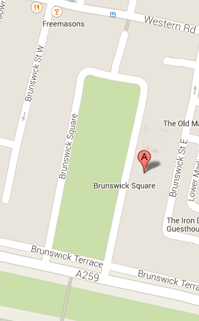An Interlude
August 20th, 1831
It hath been a busy summer for us so far – at which all are surprised.
When she came back from her jaunting earlier in the year My Lady was mawkish and sullen and even a little woebegone. With the whole house entirely to herself, some feared she would simply sit in a corner and fade away to nothingness!
Yet a gradual change came over her until she began positively to throw herself into social activities. Which, a’course, means WE have been running around like chickens with their heads cut off for the last few weeks. And Mistress be content.
So ‘twas a welcome relief on Sunday when Mary-Ann and I had our afternoon off and went walking through the market gardens and orchards of Preston Village.
We walked direct up the hill and then down the other side, following the market drove hard by the Manor: and everywhere were tiny daisies in the grass, and the scent of lilacs, and the birds a-chirping and a-warbling – a most welcome respite from the devilish shrieks of the seagull! Under the lee of a bank we came across a vixen out walking her cubs, and as even fell Mary-Ann swears she spied old Brock Badger lumbering through a copse!
We sat upon the hill overlooking the manor and the village to unpack our basket and eat our dinner – and a merrier, more relaxed day I have not had in a long time.
Yet - “Mary-Ann” says I, when the treacle tart were disposed of “Do you not feel guilty that we are so gay and well-content when, out in the countryside there are those with no homes, or jobs, courting the hangman’s rope?”
She was silent for a space but then she gave me something to think about.
“No indeed” she said at length. “for if Mistress were to drop dead this very day we would be in the very same position ourselves!”
Now this is very true, for the roof over our heads, the fine victuals, the single beds (for in our house no-one sleeps two or three to a bed as in some situations), and the shelter from the elements all depend upon our employers.
Just as the wild-eyed men roaming empty-bellied across Sussex had been at the mercy of the local farmers and wretched Gentleman Farmers (which I always says is a contradiction in terms!)who cast them off the land they had been working, like their grandparents and those afore them, as long as memory holds. (And they add insult to injury by making their wretched ‘machines’ to take bread from the mouths of babes.)
“But then, if Mistres were to die “ she continues “how do you think we should feel?” I was not sure if this was a question in need of answer, and it seemed not, for she went on:
“If we were to be cast into poverty and homelessness, do you not think that we would be well content to look back on days like this; to hug the memory to us as we huddled beneath a hedgerow; to let it warm our hearts when all about was despair? Would we wish all about us to be glum and bitter and not make the most of each moment of pleasure?”
At last “Nay.” I said slowly. For it had just come to me that, though my time with my George was tragically cut short, ‘tis the memory of our times together which glow forever warm inside me. And even at times of great despair, ‘tis the memory of how we used every minute of every day together that gives me the strength to go on – and even to write a history for the future nieces and nephews I shall never meet.
A cheeky robin redbreast fixed us with a beady eye and hopped almost to the hem of my skirt in search of crumbs; and from somewhere above us the liquid notes of a pair of blackbirds sounded far more beautiful than a human musician.
“So what I think” Mary-Ann stood up suddenly, flung her arms out to her sides and began to dance around the greensward where we sat “Is that we should eat, drink, be merry and take unto ourselves every second which offers...for such times are precious.”
Well I jumped up then, crooked my elbow into hers, and we did jig and dance and laugh till all the birds themselves quieted to listen.
When at last we threw ourselves down, panting, upon the grass and the buttercups and fallen petals I bethought me of My Lady in her endless drawing-rooms and ballrooms. Breathing naught but a fug of stale scents: of peoples clothing, and sweat and candle-grease and, oft times, piss-pots in the corners.
Poor, poor woman - laced so tightly into her corsets she can never move freely, and must needs titter breathlessly rather than shout and shriek with laughter! Unable to caper and frolic and fill her whole body up with sweet, scented summer evenings.
So, as Mary-Ann says, I shall hug that moment to me always, I am sure. And instead of feeling guilty about it, I shall always remember how it felt to dance like the Furies upon that hillside in that golden evening, and to sink into soft green grass with a good companion at my side.
For it was such a time as a cook could feel herself more fortunate than a lady - and could revel in the feeling.


